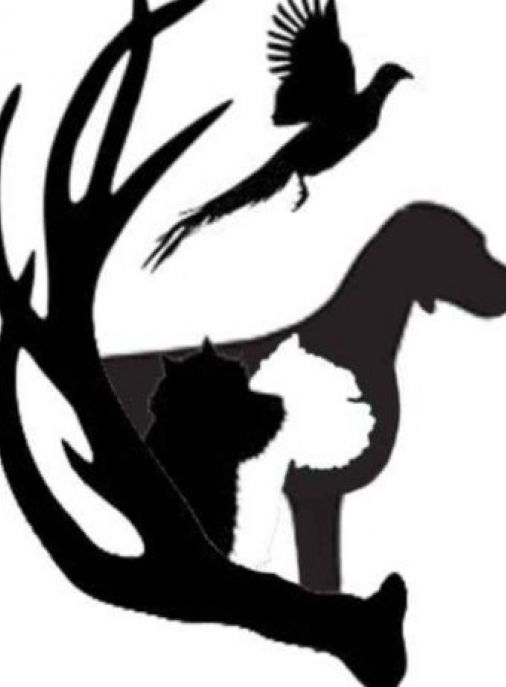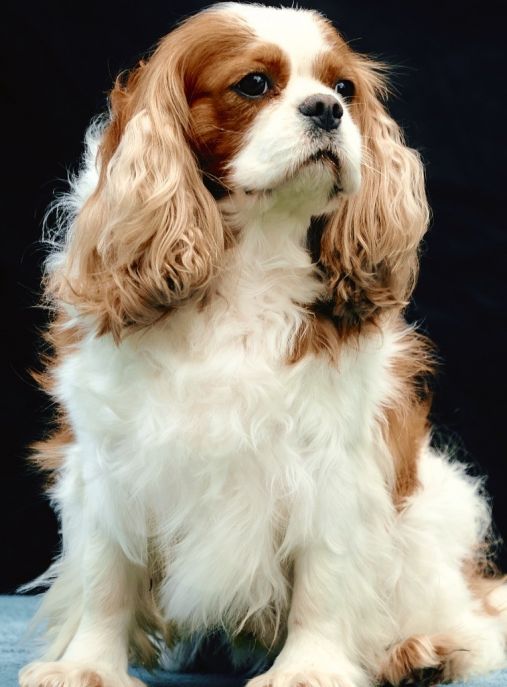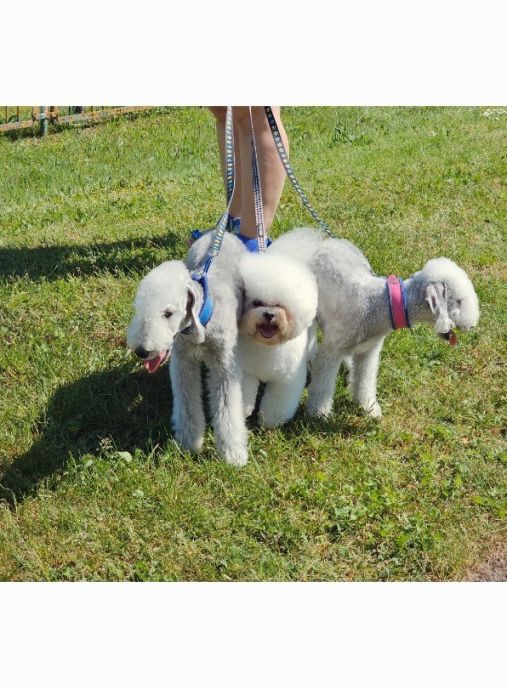The Bichon Frise is a small, charming, and affectionate dog breed that is known for its fluffy white coat and playful personality. This breed is often referred to as a "powder puff" due to its soft and fluffy fur. Bichon Frises are popular companion dogs and are loved for their cheerful and friendly nature.
The history of the Bichon Frise can be traced back to the Mediterranean region, specifically to the islands of Tenerife and Malta. It is believed that the breed descended from the Barbet, a water spaniel breed, and was later developed through crossbreeding with other small dogs like the Poodle and the Maltese.
According to the FCI (Fédération Cynologique Internationale) typology, the Bichon Frise belongs to Group 9 - Companion and Toy Dogs. This group includes small-sized dogs that are primarily bred for companionship and have a friendly and sociable temperament.
Bichon Frises are ideal pets for individuals or families looking for a loving and loyal companion. They thrive on human interaction and are known for their ability to form strong bonds with their owners. These dogs are well-suited for families with children, as they are generally patient and gentle. However, it is important to supervise interactions between young children and small dogs to ensure the safety of both parties.
In terms of physical characteristics, the Bichon Frise is a small-sized breed with a sturdy build. On average, they weigh between 7 to 12 pounds (3 to 5.5 kilograms) and stand at a height of around 9 to 12 inches (23 to 30 centimeters) at the shoulder. Their compact size makes them suitable for apartment living, but they still require regular exercise to maintain their overall health and prevent obesity.
The Bichon Frise has a distinctive double coat, which consists of a dense, soft undercoat and a curly or wavy outer coat. Their fur is hypoallergenic, making them a great choice for individuals with allergies. However, it is important to note that regular grooming is necessary to prevent matting and keep their coat in good condition. Professional grooming every 4 to 6 weeks is recommended to maintain their signature fluffy appearance.
In terms of lifespan, Bichon Frises typically live between 12 to 15 years. However, with proper care, some individuals have been known to live even longer. Regular veterinary check-ups, a balanced diet, and regular exercise are essential for ensuring the overall health and well-being of this breed.
One interesting fact about the Bichon Frise is their cheerful and playful nature. They are known for their clown-like antics and love to entertain their owners with their lively and energetic behavior. Despite their small size, Bichon Frises have a confident and outgoing personality, which makes them great therapy dogs and performers in dog shows.
Another interesting characteristic of this breed is their intelligence and trainability. Bichon Frises are quick learners and respond well to positive reinforcement training methods. They excel in obedience training and can also participate in various dog sports such as agility and rally obedience.
In conclusion, the Bichon Frise is a delightful and lovable breed that brings joy and companionship to its owners. With their fluffy white coat, friendly temperament, and playful nature, they make excellent family pets and are well-suited for individuals or families looking for a small-sized companion dog. Their intelligence, trainability, and hypoallergenic coat further add to their appeal. If you are seeking a loyal and affectionate furry friend, the Bichon Frise may be the perfect breed for you.
The Bichon Frise is a delightful and charming breed known for its friendly and affectionate nature. These small, fluffy dogs have a distinct character that sets them apart from other breeds. With their playful and lively demeanor, Bichon Frises make wonderful companions for individuals and families alike.
One of the most notable traits of Bichon Frises is their sociability. They thrive on human interaction and are incredibly people-oriented. These dogs love to be the center of attention and will eagerly seek out affection and companionship from their owners. Bichon Frises are known to form strong bonds with their families and are often described as loyal and devoted.
In addition to their love for people, Bichon Frises generally get along well with other animals, making them a great choice for households with multiple pets. Their friendly nature extends to strangers as well, as they tend to be welcoming and accepting of new people. However, proper socialization from an early age is crucial to ensure they develop good manners and remain well-behaved in various situations.
Bichon Frises are known for their playful and energetic personalities. They have a zest for life and enjoy engaging in activities that stimulate their minds and bodies. Regular exercise is essential to keep them happy and healthy. Daily walks, playtime, and interactive toys are all great ways to keep a Bichon Frise entertained and prevent them from becoming bored or restless.
Despite their small size, Bichon Frises have a surprisingly confident and self-assured demeanor. They are not easily intimidated and can display a certain level of independence. However, this should not be mistaken for stubbornness. Bichon Frises are intelligent dogs and respond well to positive reinforcement training methods. They are eager to please their owners and can quickly learn new commands and tricks.
When it comes to training, consistency and patience are key. Bichon Frises can be sensitive to harsh training techniques or raised voices, so it is important to use gentle and positive reinforcement methods. Early socialization and obedience training are crucial to ensure they grow up to be well-mannered and well-adjusted dogs.
Grooming is another important aspect of caring for a Bichon Frise. Their beautiful, hypoallergenic coat requires regular maintenance to keep it looking its best. Daily brushing is necessary to prevent matting and tangling. Regular professional grooming appointments are also recommended to keep their coat trimmed and tidy.
In conclusion, Bichon Frises are delightful dogs with a friendly and affectionate character. They thrive on human companionship and are known for their sociability. With proper training, socialization, and exercise, these small and playful dogs can make wonderful additions to any family. Their intelligence and eagerness to please make them relatively easy to train, while their hypoallergenic coat requires regular grooming to keep it in top condition. If you are looking for a loving and lively companion, the Bichon Frise might just be the perfect breed for you.
Bichon Frise dogs are adorable, fluffy, and affectionate companions that require specific care to keep them healthy and happy. From grooming to exercise and nutrition, here are some essential tips on how to care for Bichon Frise dogs, along with things to do and avoid:
Grooming:
1. Regular grooming is crucial for Bichon Frise dogs due to their thick, curly coat. Brush their fur daily to prevent matting and tangles.
2. Schedule professional grooming every 4-6 weeks to maintain their coat's shape and length.
3. Trim their nails regularly to prevent discomfort and potential injuries.
4. Clean their ears weekly to prevent infections. Use a veterinarian-approved ear cleaner and gently wipe the outer ear with a cotton ball.
5. Brush their teeth daily to prevent dental issues. Use a dog-specific toothbrush and toothpaste to maintain their oral hygiene.
Exercise:
1. Bichon Frise dogs are energetic and require daily exercise to stay healthy. Aim for at least 30 minutes to an hour of exercise, such as walks, playtime, or interactive toys.
2. Mental stimulation is equally important. Engage them in puzzle toys or obedience training sessions to keep their minds active.
3. Be cautious with extreme temperatures. Bichon Frise dogs are sensitive to heat and cold, so avoid exercising them during the hottest hours of the day or in freezing temperatures.
Nutrition:
1. Provide a balanced and high-quality diet suitable for small breed dogs. Consult with your veterinarian to determine the appropriate portion sizes and feeding schedule.
2. Avoid overfeeding, as Bichon Frise dogs are prone to obesity. Measure their food and avoid excessive treats.
3. Ensure access to fresh water at all times to keep them hydrated.
Healthcare:
1. Regular veterinary check-ups are essential to monitor their overall health, vaccinations, and prevent any potential health issues.
2. Bichon Frise dogs are prone to dental problems, so professional dental cleanings may be necessary.
3. Keep up with their vaccinations, flea, and tick prevention treatments as recommended by your veterinarian.
4. Be aware of common health issues in this breed, such as allergies, skin problems, and eye conditions. Regularly check their eyes for any signs of redness, discharge, or irritation.
Things to do:
1. Provide plenty of love, attention, and socialization. Bichon Frise dogs thrive on human companionship and can suffer from separation anxiety if left alone for long periods.
2. Train them using positive reinforcement techniques. Bichon Frise dogs are intelligent and eager to please, making them responsive to training.
3. Create a safe and comfortable environment for them, including a cozy bed, toys, and a designated space for their needs.
Things to avoid:
1. Avoid leaving them alone for extended periods. Bichon Frise dogs are prone to separation anxiety and may develop destructive behaviors if left alone for too long.
2. Avoid harsh training methods or punishment. These sensitive dogs respond best to positive reinforcement and gentle guidance.
3. Avoid overexposure to extreme weather conditions, as Bichon Frise dogs are susceptible to heatstroke and cold-related issues.
Remember, each Bichon Frise dog is unique, so adapt these care tips to suit their individual needs. By providing proper care, love, and attention, you can ensure a long and joyful life for your Bichon Frise companion.
The Bichon Frise, a small and charming breed, is known for its distinctive and eye-catching coat. While the breed standard allows for a variety of colors, the most common color seen in Bichon Frise dogs is pure white. This pristine and dazzling hue is one of the defining characteristics of this breed, adding to its overall appeal and elegance.
The white color of the Bichon Frise's coat is often described as being as pure as freshly fallen snow. It is a brilliant and luminous shade that exudes a sense of cleanliness and innocence. The coat is typically soft and fluffy, resembling a cloud of cotton candy, which further enhances the visual impact of the white color.
The white coat of the Bichon Frise is not only visually striking but also serves a practical purpose. It helps to reflect sunlight, keeping the dog cool in warmer climates. Additionally, the white color makes it easier to spot any dirt or debris that may accumulate on the coat, allowing for regular grooming and maintenance.
Although the Bichon Frise is predominantly white, it is not uncommon to see slight variations in shade. Some individuals may have a slightly creamier or off-white coloration, which adds a subtle warmth to their appearance. However, it is important to note that any other color or markings on the coat, such as patches or spots, are considered faults according to the breed standard.
Maintaining the pristine white coat of a Bichon Frise requires regular grooming and care. The coat is non-shedding and hypoallergenic, making it an ideal choice for individuals with allergies. However, it does require frequent brushing to prevent matting and tangling. Regular bathing is also necessary to keep the coat clean and bright, as any dirt or stains can be more noticeable on the white fur.
In conclusion, the common color of Bichon Frise dogs is a stunning and pure white. This color not only adds to their overall aesthetic appeal but also serves practical purposes. The white coat is a defining characteristic of the breed and requires regular grooming to maintain its pristine appearance. With their snow-white coats, Bichon Frise dogs are truly a sight to behold.
The Bichon Frise is a small, cheerful, and affectionate breed known for its fluffy white coat and playful nature. While generally healthy, like all dog breeds, Bichon Frises are prone to certain health issues that owners should be aware of. Understanding these common diseases and taking appropriate care can help ensure the overall health and well-being of these adorable dogs.
One of the most prevalent health concerns in Bichon Frises is allergies. These can manifest as skin allergies, food allergies, or environmental allergies. Skin allergies often result in itching, redness, and hair loss, while food allergies may cause gastrointestinal issues. Environmental allergies can be triggered by pollen, dust mites, or certain chemicals. Regular grooming, including bathing and brushing, can help alleviate skin allergies. Additionally, identifying and avoiding allergens in the dog's environment and providing a balanced, hypoallergenic diet can significantly reduce allergic reactions.
Another common health issue in Bichon Frises is dental problems. Due to their small size and crowded teeth, Bichons are prone to dental plaque buildup, gum disease, and tooth loss. Regular dental care is crucial for maintaining their oral health. This includes daily tooth brushing using a dog-friendly toothpaste, regular dental check-ups, and providing appropriate chew toys or dental treats to help reduce plaque formation.
Patellar luxation, a condition where the kneecap dislocates from its normal position, is also prevalent in Bichon Frises. This can cause lameness, pain, and difficulty in walking. While some cases may require surgical intervention, regular exercise and maintaining a healthy weight can help prevent or manage this condition.
Bichon Frises are also susceptible to eye problems, including cataracts, glaucoma, and progressive retinal atrophy (PRA). Regular eye examinations by a veterinarian can help detect these issues early on, allowing for timely treatment. Additionally, keeping the eyes clean and free from excessive tearing can help prevent infections and other eye-related complications.
Another health concern in Bichon Frises is bladder stones. These can cause discomfort, frequent urination, and blood in the urine. Ensuring an appropriate diet with adequate hydration and regular bathroom breaks can help prevent the formation of bladder stones. In some cases, surgical removal may be necessary.
To maintain the overall health of Bichon Frises, regular veterinary check-ups are essential. Vaccinations, parasite prevention, and routine blood tests can help identify any underlying health issues and ensure timely treatment. A balanced diet, appropriate exercise, and mental stimulation are also crucial for their well-being. Regular grooming, including brushing their coat, cleaning their ears, and trimming their nails, is necessary to keep them clean and prevent skin infections.
In conclusion, while Bichon Frises are generally healthy dogs, they are prone to certain health issues. Allergies, dental problems, patellar luxation, eye problems, and bladder stones are among the most common diseases found in this breed. By providing proper care, including regular veterinary check-ups, dental care, grooming, and a balanced diet, owners can help ensure the health and happiness of their Bichon Frise companions.
The Bichon Frise is a small, fluffy, and adorable breed known for its playful and friendly nature. To ensure their overall health and well-being, it is crucial to provide them with a balanced and nutritious diet. Proper nutrition plays a vital role in maintaining their energy levels, promoting a healthy coat, and supporting their overall growth and development.
When it comes to feeding a Bichon Frise, it is important to choose high-quality dog food that meets their specific nutritional needs. Look for a well-balanced commercial dog food that is specifically formulated for small breeds or all life stages. These foods are designed to provide the right balance of proteins, carbohydrates, fats, vitamins, and minerals that Bichon Frises require.
Protein is an essential component of a Bichon Frise's diet as it helps in muscle development and repair. Look for dog foods that list high-quality sources of protein, such as chicken, turkey, fish, or lamb, as the first ingredient. Avoid foods that contain excessive amounts of fillers, by-products, or artificial additives.
Carbohydrates are a crucial energy source for Bichon Frises. Look for dog foods that include whole grains like brown rice, oats, or barley. These complex carbohydrates provide sustained energy and are easier to digest compared to simple carbohydrates like corn or wheat.
Healthy fats are also important for a Bichon Frise's diet. Look for dog foods that contain sources of omega-3 fatty acids, such as fish oil or flaxseed. These fats promote a healthy coat, reduce inflammation, and support brain function.
Feeding guidelines for Bichon Frises can vary depending on their age, weight, activity level, and overall health. It is recommended to follow the feeding guidelines provided by the dog food manufacturer and adjust the portions as needed. Typically, adult Bichon Frises require around 1/2 to 1 cup of high-quality dog food divided into two meals per day.
In addition to their regular meals, Bichon Frises can benefit from occasional healthy treats. Look for treats that are specifically made for small breeds and are low in calories. Avoid giving them table scraps, as certain human foods can be toxic to dogs, such as chocolate, grapes, onions, and garlic.
Proper hydration is also essential for a Bichon Frise's overall health. Always ensure that fresh and clean water is available for them at all times. Monitor their water intake, especially during hot weather or increased physical activity, to prevent dehydration.
While providing a nutritious diet is crucial, it is equally important to avoid overfeeding a Bichon Frise. This breed is prone to obesity, which can lead to various health issues. Monitor their weight regularly and consult with a veterinarian to determine the appropriate portion sizes for your dog's specific needs.
In conclusion, feeding a Bichon Frise a balanced and nutritious diet is essential for their overall health and well-being. Choose high-quality dog food specifically formulated for small breeds, ensure a proper balance of proteins, carbohydrates, and fats, and avoid excessive fillers or artificial additives. Monitor their weight, provide fresh water, and consult with a veterinarian for specific dietary recommendations. By following these guidelines, you can help your Bichon Frise live a long, healthy, and happy life.























